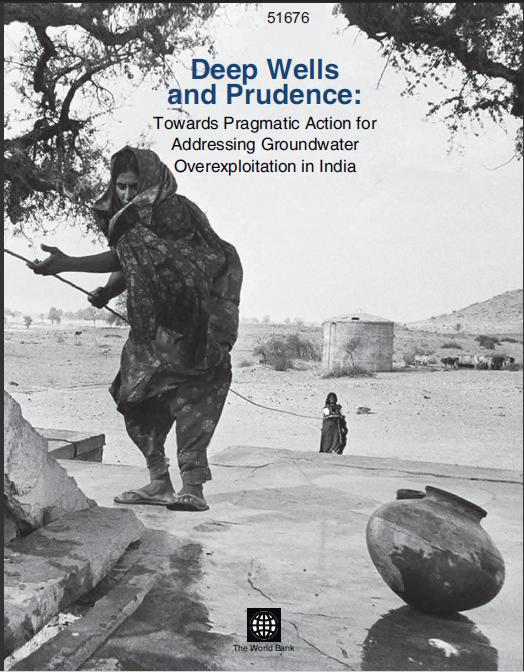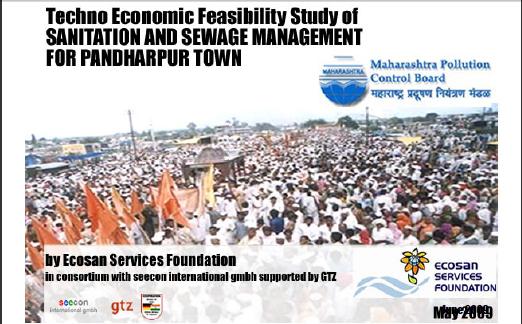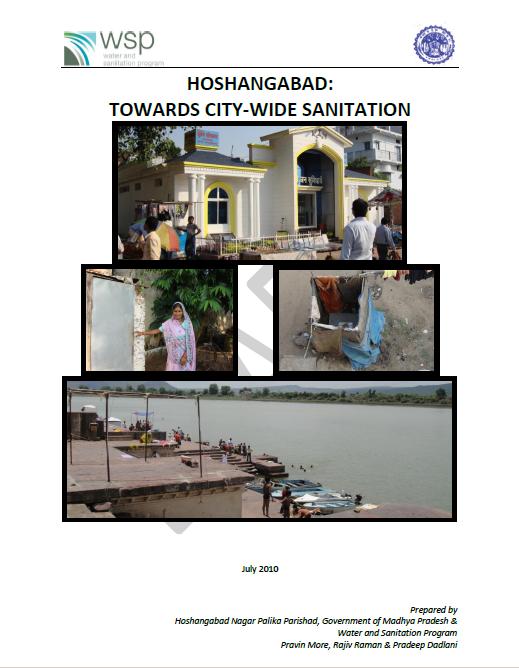/topics/urban-water
Urban Water
Wastewater reuse in apartment buildings in Bangalore - S Vishwanath
Posted on 14 Apr, 2011 10:12 AMEven if an apartment uses as less as 5000 litres of water a day it must have a wastewater recycling system which does such a thorough job that the treated wastewater is reused to replace fresh water and not for simply disposing off into the environment in a safe way. It is simply not good enough for treated wastewater to be used for watering lawns, an unnecessary demand.
Dissemination of NDM-1 positive bacteria in the New Delhi environment and its implications for human health - An environmental point prevalence study published in The Lancet Infectious Diseases (2011)
Posted on 13 Apr, 2011 03:15 PMPlasmid-encoding Carbapenemase-resistant Metallo-B-Lactamase (PCM or NDM-1) is an enzyme that makes bacteria resistant, not only to a broad range of antibiotics such as carbapenems and other β-lactam, but also to multiple other antibiotic classes, leaving very few treatment options available, when a person gets infected with such bacteria.
Deep wells and prudence - Towards pragmatic action for addressing groundwater overexploitation in India - A World Bank document (2010)
Posted on 12 Apr, 2011 01:51 AM India is the largest user of groundwater resources in the world. It is estimated that approximately 230 cubic kilometers per year is used annually, this is more than a quarter of the total world consumption from this resource.
India is the largest user of groundwater resources in the world. It is estimated that approximately 230 cubic kilometers per year is used annually, this is more than a quarter of the total world consumption from this resource.
It is in this context that this World Bank report looks at the reasons for this quantum of groundwater usage.
The report delves into socio-economic and political reasons and looks at policies which inadvertently promote so much extraction. The report also analyses various attempts to manage this resource. These attempts range from government and international agency efforts directed to grassroots mobilisations. Finally the report comes out with suggestions to deal with this crisis.
Groundwater use in Aurangabad – A survey and analysis of social significance and policy implications for a medium-sized Indian city by GW MATE and World Bank (2008)
Posted on 12 Apr, 2011 01:17 AMAurangabad, a city in central Maharashtra is in a drought prone region, and being a rapidly urbanising town, is facing a lot of pressure on ots water resources. Besides importing water there has been an increasing trend of ground water extraction.
In this context, a survey of groundwater use was conducted as part of a World Bank study on Indian groundwater management. The study was a collaboration between GW MATE(Groundwater Management Advisory Team) and GRASP (Grass Roots Action for Social Participation), an Aurangabad-based civil society organization working on community-based natural resource management.
Indian standard code of practice for installation of septic tanks (IS: 2470) - Bureau of Indian Standards (1986)
Posted on 11 Apr, 2011 03:46 AMThis IS Code provides various requirements that have to be met while constructing a septic tank, so that it meets minimum standards. This Code is dictated by the Bureau of Indian Standards, and ensures that the sewage is treated in a way that maintains health and hygiene of the community.
While the first standard for small septic tanks was first printed in 1963 and then revised in 1968, the standard for disposal of effluent from septic tanks was published later in 1964 and revised in 1971.
This code has been sourced through City Managers' Association Karnataka (CMAK), a non profit that provides technical expertise to urban local bodies.
Techno-economic feasibility study of sanitation and sewage management for Pandharpur town, Maharashtra - Ecosan Services Foundation (2009)
Posted on 10 Apr, 2011 02:15 AM This study provides interventions to solving the sanitation crisis in the holy town of Pandharpur, situated on the banks of the Chandrabagha/Bhima river, in the state of Maharashtra, which receives more than 1.5 crore devotees annually. On any given day there are approximately 20,000 pilgrims in this Class B town. This vast floating population creates massive sanitation problems leading to environmental and hygiene issues. The study forms part of the Maharashtra State Pollution Control Board's 'Environmental Improvement Programme at Religious Places in Maharashtra' project.
This study provides interventions to solving the sanitation crisis in the holy town of Pandharpur, situated on the banks of the Chandrabagha/Bhima river, in the state of Maharashtra, which receives more than 1.5 crore devotees annually. On any given day there are approximately 20,000 pilgrims in this Class B town. This vast floating population creates massive sanitation problems leading to environmental and hygiene issues. The study forms part of the Maharashtra State Pollution Control Board's 'Environmental Improvement Programme at Religious Places in Maharashtra' project.
Hoshangabad - Towards city wide sanitation - A draft report by Hoshangabad Nagar Palika Parishad and WSP
Posted on 10 Apr, 2011 01:57 AM  This proposal prepared by Hoshangabad Nagar Palika Parishad, Government of Madhya Pradesh and Water and Sanitation Programme South Asia, is meant to ensure that every household in this town adopts safe sanitation practices and is to help enable the urban local body, implement a city wide sanitation programme that finally ensures collection and treatment of waste.
This proposal prepared by Hoshangabad Nagar Palika Parishad, Government of Madhya Pradesh and Water and Sanitation Programme South Asia, is meant to ensure that every household in this town adopts safe sanitation practices and is to help enable the urban local body, implement a city wide sanitation programme that finally ensures collection and treatment of waste.
This document is the tenth mile stone in the process of achieving the goal of city-wide sanitation for Hoshangabad.
World Water Day in Kerala- Call to address issues of water security
Posted on 07 Apr, 2011 05:52 PMCentre for Water Resources Development and Management (CWRDM) organised a panel discussion at Sasthra Bhavan on Saturday, 19th March 2011, in connection with the celebration of World Water Day which falls on March 22.
Rainwater harvesting in Bangalore - Article from Countercurrents
Posted on 28 Mar, 2011 10:20 AMAnchor in one of the local papers said, residents of a locality in Bangalore are buying bottles of mineral water to bathe in! There is also a tanker mafia in the city that charges anywhere upwards of 500 rupees for a tanker of water. Most buildings need at least two tankers of water to manage in a day. That is how tough this summer is going to be. Then why?





